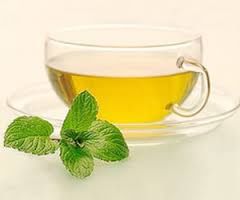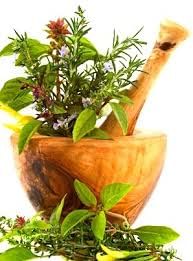Tulsi - A **Miracle** Plant
Tulsi - a **miracle** plant
Tulsi is regarded as an 'elixir of life' and believed to promote longevity. It is considered to be an adaptogen, balancing different processes in the body. It has also been suggested to possess antifertility, anticancer, antidiabetic, antifungal, antimicrobial, hepatoprotective, cardioprotective, antiemetic, antispasmodic, analgesic, and diaphoretic actions.
A. Benefits-:
1. It is considered as a tonic to retain youth and avoid aging. Vitamin c, vitamin a, phytonutrients and the essential oils in tulsi are excellent antioxidants and protect the body from nearly all the damages caused by the free radicals.
2. It is anti-carcinogenic and it found to be effective in healing nearly all types of cancer and tumors.
3. It reduces total cholesterol levels and blood pressure. Thus, it is useful for heart disease patients.
4. It is useful in the treatment of respiratory system disorders. A decoction of the leaves, with honey and ginger, is an effective remedy for bronchitis, asthma, influenza, cough and cold.
5. It can protect from radiation poisoning and also heals up damages caused by radiations. It acts as a vaccine against pox if consumed regularly.
6. It is used as a mouth wash. It is very good for maintaining dental health, counteracting bad breath and for massaging the gums. It is also useful in pyorrhea.
7. It also cures ulcer in the mouth. It is also known to help inhibit the growth of oral cancer caused by chewing tobacco etc.
8. It is an excellent antibiotic, germicidal, fungicidal and disinfectant and very efficiently protects our body from nearly all sorts of bacterial, viral and fungal infections.
9. Consumption of tulsi leaves decoction helps prevent and heal fever.
10. It has a hypoglycemic effect, so it reduces blood glucose levels. Thus, it is useful for diabetics.
11. It helps in building up stamina, hence used to prepare herbal tea.
12. Its regular consumption can protect eyes from all the damages done by the free radicals, such as cataract, macular degeneration, glaucoma, vision defects, opthalmia etc. Due to its high antioxidant properties.
13. Recent studies on tulsi proved to be a useful medication for people living with human immunodeficiency virus (hiv), and acquired immune deficiency virus (aids).
14. Tulsi, being a detoxifier and mild diuretic in nature, can help reduce uric acid level (main culprit as far as kidney stones are concerned) concentration in the blood as well as helps cleaning of the kidneys through urination.
15. Tulsi oil application on the body keeps mosquitoes and other insects away.
B. How to use-:
1. Tulsi leaves extract (swaras)-
- how to prepare - take some fresh tulsi leaves, wash them, then crush them well and squeeze the pure extract.
- dose - 2tablespoon in adults empty stomach in the morning.
- beneficial in cold, cough, fever, oral ulcer, liver disorders, indigestion, bronchitis, insect bites, cancer ((bacterial and viral infections).
- extenal application of tulsi leaves extract- in fungal infections, ringworm, insect bites.
2. Tulsi leaves decoction (kaadha)-
- how to prepare - take some fresh tulsi leaves, wash them, boil with 4cups of water. Boil this until 1cup of water remains.
- dose- drink half cup (lukewarm) in the morning on empty stomach and a half cup in the evening.
- beneficial in pyorrhea, cold, cough, influenza, rheumatoid arthritis, gastric disorders, tuberculosis (bacterial and viral infections).
- a decoction of the whole plant lowers the blood sugar (glucose) level and is said to control diabetes mellitus.
- a decoction of the root of tulsi plant is given as a diaphoretic in malarial fever.
- the regular consumption of tulsi leaves extract or decoction helps prevent viral fevers, cough, cold and many other diseases.




+1.svg)
